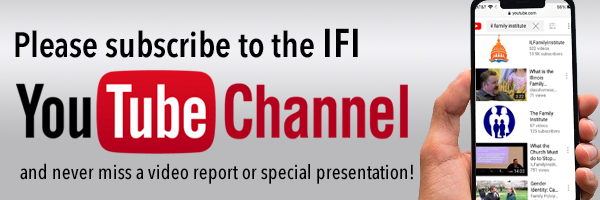Age Appropriate Doesn’t Mean Banned
Nothing opens your mind to new worlds and new possibilities better than a book. Stories can communicate ideas, themes, and lessons considerably better than a lecture does. Children love to act out the stories of their favorite characters, adopting their mannerisms and wishing to be them. You probably can think of a book that has impacted you deeply and maybe even encouraged you to change your behavior in some manner.
Stories are incredibly powerful, sometimes bringing about great change in a culture.
Throughout history, various groups and organizations have banned books for a myriad of reasons: they were deemed inappropriate or immoral, the ideas proliferated were considered dangerous or heretical, or a tyrant thought they would stir up unrest and opposition to his rule.
Book banning is not a good thing. Because of the innate sinfulness of humanity, banning one book opens the door for unjust people or groups to ban anything they choose.
Lately, so-called book banning has been forefront in the news; a story complicated by the narrative the media is spinning. In 2020, when everything shut down due to Covid, public schooling moved to Zoom, and parents could see what their children were being taught and the material they were assigned, including the books their kids were reading.
At some point during all of this, it was discovered that there are books in elementary through high school libraries that are highly pornographic. This is not an exaggeration. If you don’t believe me, watch this video posted by a concerned mother (WARNING: graphic content).
Understandably, parents began forming groups to advocate for having more of a say in what their children are learning in public schools and began rightly contesting books such as Gender Queer, All Boys aren’t Blue, and Lawn Boy, reading them out loud at school board meetings, requesting that schools remove them from their libraries, and asking that they provide age-appropriate reading material only.
Now the media is attacking parents and parental rights groups like Moms for Liberty. The story is being framed to make it look like these parents are trying to ban books because they are bigots who don’t want their children exposed to “diverse” ideas. They’re comparing concerned parents to Big Brother in George Orwell’s 1984 (which is ironic, since in 1984 it was Big Brother that was providing people with porn).
Without coming right out and saying it, they’re purporting that schools should have these books in their libraries precisely because parents don’t want their kids to read them. The idea seems to be, “What if those poor kids feel uncomfortable with who they are and need a place to express themselves and learn about every aspect of the LGBTQIA agenda without the involvement of their mean, strict parents?”
Not only is this a twisted spin on the facts, but it is a downright lie. Banning a book means that the book is banned. It’s illegal to buy, sell, read, or own, and anyone caught with it would face punishment. That isn’t what these parents are requesting. Asking that a book be removed from a school library because of inappropriate content doesn’t vilify the parent.
Similarly, we wouldn’t blame a parent for taking a phone away from their child who is doing things he or she isn’t supposed to with it. Children aren’t allowed to go to tattoo parlors or tanning salons, and we rate movies based on the content because there are things children (and people in general) should not see.
Requesting only age-appropriate content in public schools doesn’t constitute a ban.
Much of the reasoning behind the media’s spin of the story is because most, if not all, of the contested books are LGBTQIA+ related. Our culture is obsessed with self– personal autonomy, total unrestricted freedom, and the pursuit of making oneself happy. It’s a worldview that says, “Anything goes, but if you get in the way of my anything, you need to go.”
But freedom in this world isn’t unlimited. Free societies still have laws and legal consequences for breaking them because people do bad things. If those things were allowed to continue without repercussions, society would collapse. Insisting on having the freedom to gratify the desires of the flesh ends up in slavery to death and eternal destruction.
The backbone of true freedom is Biblical morality.
Some things absolutely should be illegal. In reality, the LGBTQIA+ movement has to do with a grotesque focus on sex. It’s openly targeting children, who, be they seven or seventeen, ought to be guarded against, not exposed to pornography. Adults shouldn’t be filling their minds with it either.
Stories have the power to change minds, for good or for evil. Requesting that a school provide only age-appropriate material is a good thing, and very different from book banning.
